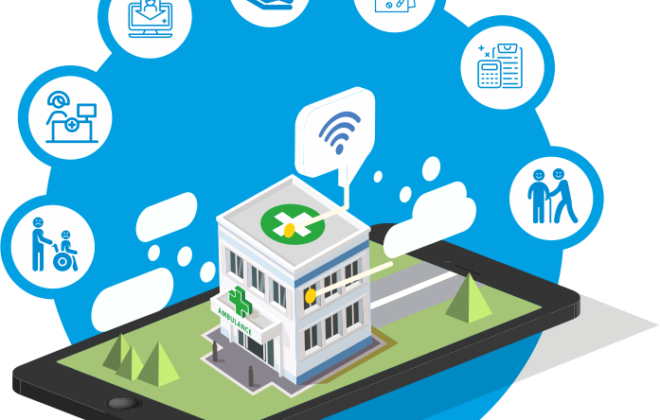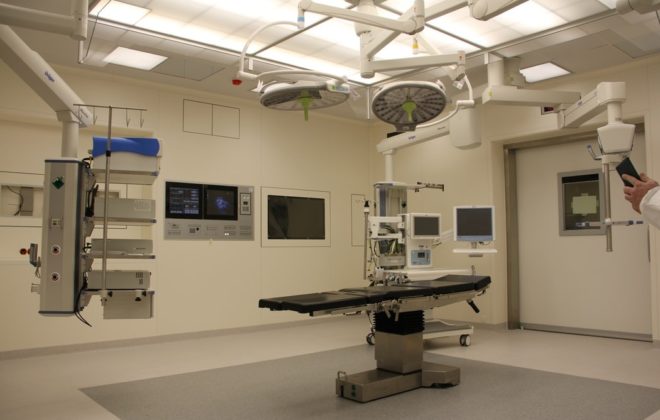Beyond Recordkeeping, The True Value of Hospital Information Systems
Information technology has become pervasive in our lives in a manner that it has emerged as a key tool for development and growth. In the healthcare scenario, Hospital Information Systems or HIS, have become the enablers of efficiencies, improving patient care, increasing patient satisfaction levels, and reducing healthcare costs. HIS aims at providing a paperless environment to the hospital operations such as administrative, financial and clinical systems. With extensive changes taking place in the field of medical technology coupled with the increased expectations of patients, Hospital Information Systems emerge as one of the key differentiators that give hospitals competitive advantage.
However, the value of Hospital Information Systems extends beyond recordkeeping. A hospital is a complex health unit and demands that all departments function in timed synchronization with one another. So, while Hospital Information Systems store all relevant patient data and allow its easy retrieval, they also impact the other hospital functionalities. Here’s a look at how these Hospital Information Systems are changing the hospital environment and transforming healthcare.
Improved Department Management
Hospital Information Systems give hospitals the capabilities to manage the complex department network that span the hospitals. With HIS, stakeholders can manage department scheduling and staffing needs with ease, gain insights into multiple physician schedules and their availability, and also reassign or reschedule appointments.
In the OPD, Hospital Information Systems can update and store all information right from bed management, admission management, nurse management, insurance management, transfers, service eligibilities etc.
Comprehensive Hospital Information Systems also assist the finance department not only manage billings and insurance processes but also in inventory management, returns, and re-orders, credit, and debit adjustments, prescription-controlled pharmacy sales, flexible consumer plans, discount offers and cashless billings as well as managing inbound and outbound referrals and their associated fees.
Improved Doctor-Patient Communication and Improved Decision-Making
While EMRs serve as the ready repository to all patient information such as their detailed medical history, lab and investigative reports, x-rays, procedural notes etc. a Hospital Information System makes it possible for doctors to improve patient interactions and satisfaction levels. HIS gives the doctors the capability to be more proactive in their interactions with the patients. Leveraging HIS, they can send appointment confirmations, instant notifications, post-appointment messages, important updates etc. and ensure that the patients do not miss out on any vital piece of information to manage their health better. This facility is hugely beneficial, especially when managing critical illnesses and chronic ailments. Additionally, since HIS provides a single source of truth by integrating patient information from multiple sources, it reduces the scope for errors and aids the adoption of preventive and precision medicine.
Better Care Coordination
Hospital Information Systems decrease the fragmentation of care in the hospital ecosystem by integrating and organizing patient health information. It also provides the capability to instantly disburse this information amongst those authorized to be involved in the patient’s care. Greater availability of this information reduces chances of error and the bane of unnecessary tests. It ensures that there are no information gaps especially when a patient is consulting multiple specialists or is receiving treatment under emergency conditions. HIS systems also generate automated reminders or alerts for better care management. Better care coordination automatically leads to better care quality and this consequently leads to better care outcomes.
Improves Security
Hospital Information Systems store all medical data and related information in secure databases. They provide a single source of truth and make the hospital ecosystem more secure by making the entire hospital the part of an interconnected network. Whether it is patient information, patient status, OT availability, in-patient status, administrative notes, etc. HIS systems give real-time access to relevant data. A good HIS system also ensures that every bit of information in the system is kept secure from unauthorized access, ensures compliance with regulatory norms, and helps hospitals avoid errors by allowing them to track every single detail in the entire hospital ecosystem.
Establish the Foundation for the Smart Hospital Concept
Good HIS systems lay the foundation for technically advanced hospitals. Those hospitals looking at adopting technology to evolve into ‘smart hospitals’ have to look at intelligent Hospital Information Systems to create a connected environment between hospital staff, clinicians, doctors, while managing workflows and internal processes. Unless hospitals have a good HIS system in place, implementing the smart hospital framework becomes an almost impossible task as the basic tenant of smart hospitals is creating a network of interconnected objects that can seamlessly talk to one another to improve healthcare delivery.
Hospital Information Systems empower the entire hospital ecosystem, be it the doctors, specialists, caregivers, hospital staff and all ancillary departments and gives them the ability to manage their day more competently. The implementation of such systems makes the hospital not only efficient in managing patients but also helps them become future-ready to ensure the best healthcare delivery at all given times.




